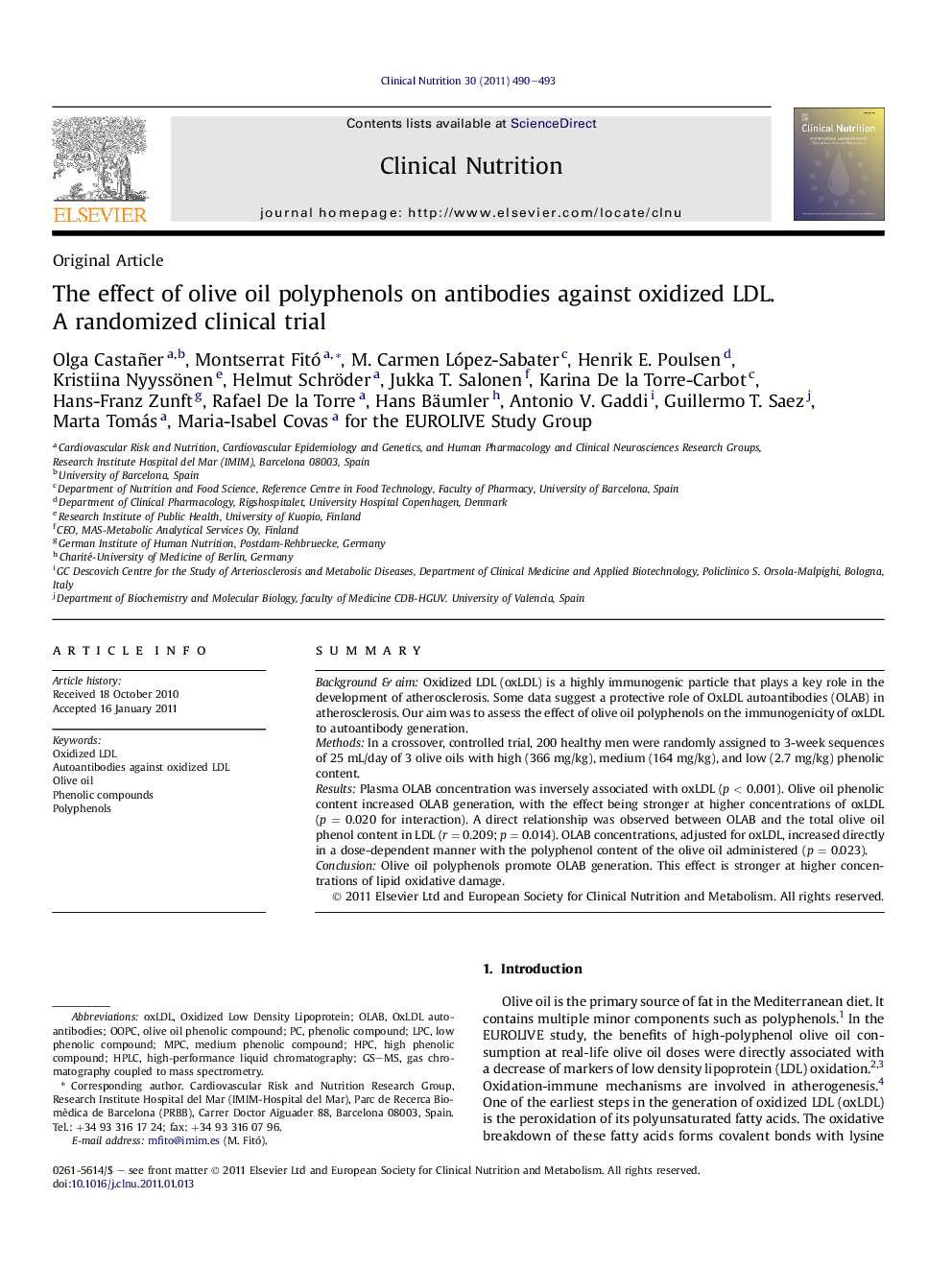| Article ID | Journal | Published Year | Pages | File Type |
|---|---|---|---|---|
| 5871634 | Clinical Nutrition | 2011 | 4 Pages |
SummaryBackground & aimOxidized LDL (oxLDL) is a highly immunogenic particle that plays a key role in the development of atherosclerosis. Some data suggest a protective role of OxLDL autoantibodies (OLAB) in atherosclerosis. Our aim was to assess the effect of olive oil polyphenols on the immunogenicity of oxLDL to autoantibody generation.MethodsIn a crossover, controlled trial, 200 healthy men were randomly assigned to 3-week sequences of 25 mL/day of 3 olive oils with high (366 mg/kg), medium (164 mg/kg), and low (2.7 mg/kg) phenolic content.ResultsPlasma OLAB concentration was inversely associated with oxLDL (p < 0.001). Olive oil phenolic content increased OLAB generation, with the effect being stronger at higher concentrations of oxLDL (p = 0.020 for interaction). A direct relationship was observed between OLAB and the total olive oil phenol content in LDL (r = 0.209; p = 0.014). OLAB concentrations, adjusted for oxLDL, increased directly in a dose-dependent manner with the polyphenol content of the olive oil administered (p = 0.023).ConclusionOlive oil polyphenols promote OLAB generation. This effect is stronger at higher concentrations of lipid oxidative damage.
